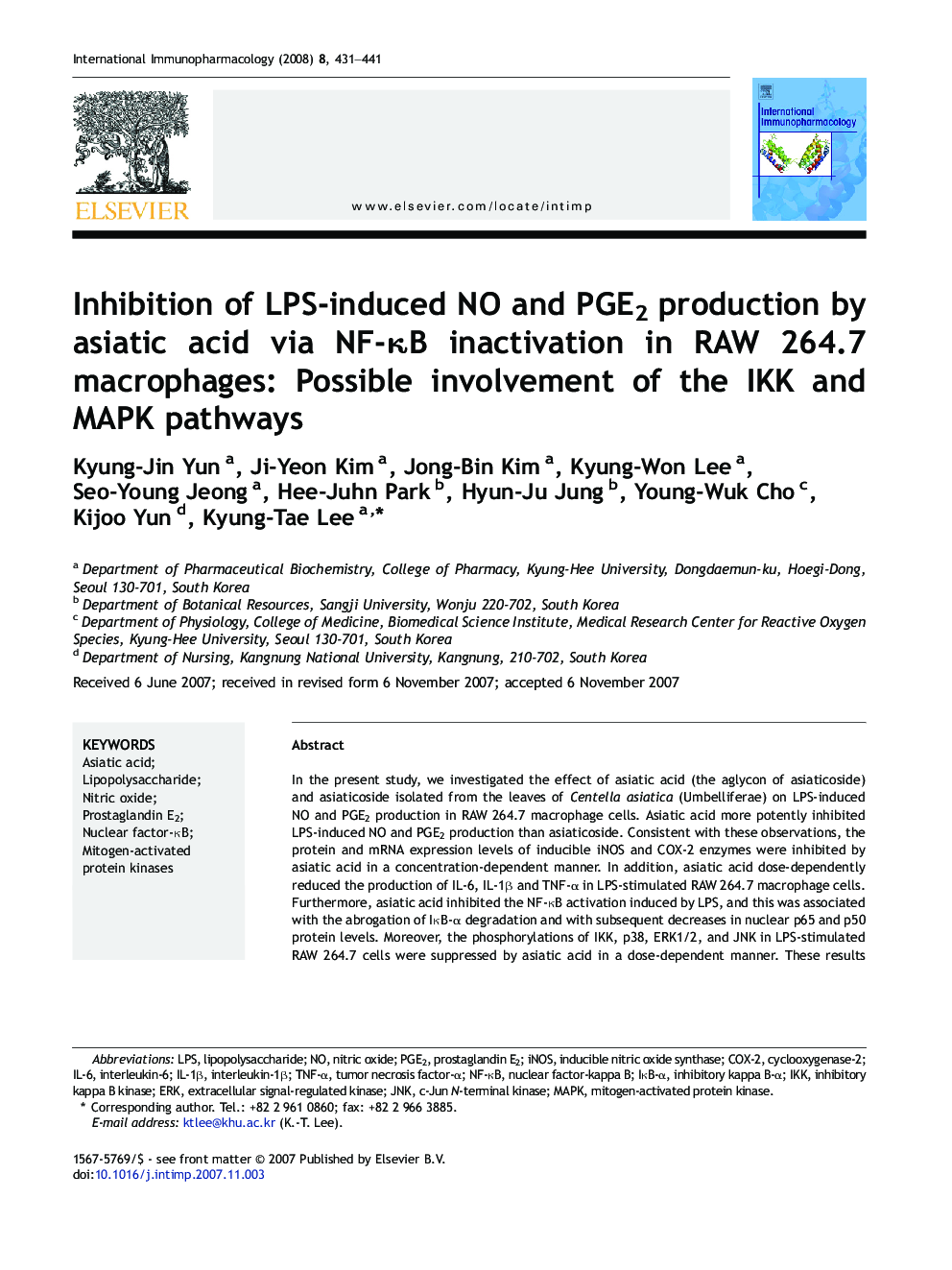| Article ID | Journal | Published Year | Pages | File Type |
|---|---|---|---|---|
| 2542293 | International Immunopharmacology | 2008 | 11 Pages |
In the present study, we investigated the effect of asiatic acid (the aglycon of asiaticoside) and asiaticoside isolated from the leaves of Centella asiatica (Umbelliferae) on LPS-induced NO and PGE2 production in RAW 264.7 macrophage cells. Asiatic acid more potently inhibited LPS-induced NO and PGE2 production than asiaticoside. Consistent with these observations, the protein and mRNA expression levels of inducible iNOS and COX-2 enzymes were inhibited by asiatic acid in a concentration-dependent manner. In addition, asiatic acid dose-dependently reduced the production of IL-6, IL-1β and TNF-α in LPS-stimulated RAW 264.7 macrophage cells. Furthermore, asiatic acid inhibited the NF-κB activation induced by LPS, and this was associated with the abrogation of IκB-α degradation and with subsequent decreases in nuclear p65 and p50 protein levels. Moreover, the phosphorylations of IKK, p38, ERK1/2, and JNK in LPS-stimulated RAW 264.7 cells were suppressed by asiatic acid in a dose-dependent manner. These results suggest that the anti-inflammatory properties of asiatic acid might be the results from the inhibition of iNOS, COX-2, IL-6, IL-1β, and TNF-α expressions through the down-regulation of NF-κB activation via suppression of IKK and MAP kinase (p38, ERK1/2, and JNK) phosphorylation in RAW 264.7 cells.
